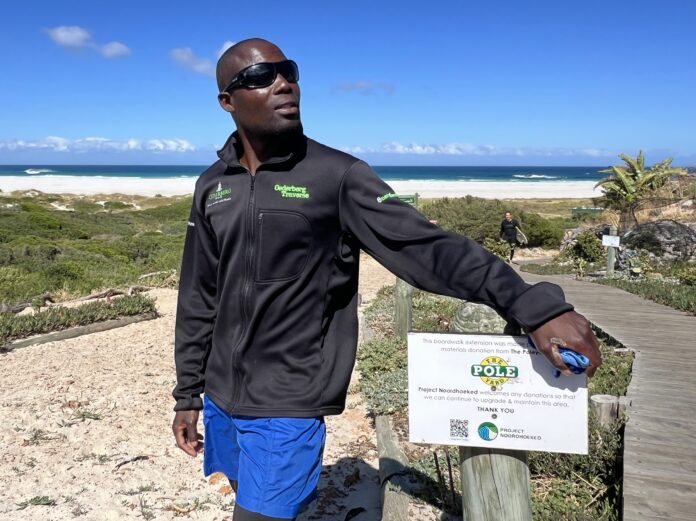
Fifteen minutes into our Long Beach walk from the Noordhoek Car Park, our guide suddenly recalls he had forgotten to collect and hand out fabric bags for us to collect plastics littering the beach.
“No problem,” says our guide. “You keep walking and I’ll quickly run back and fetch them and catch you up!”
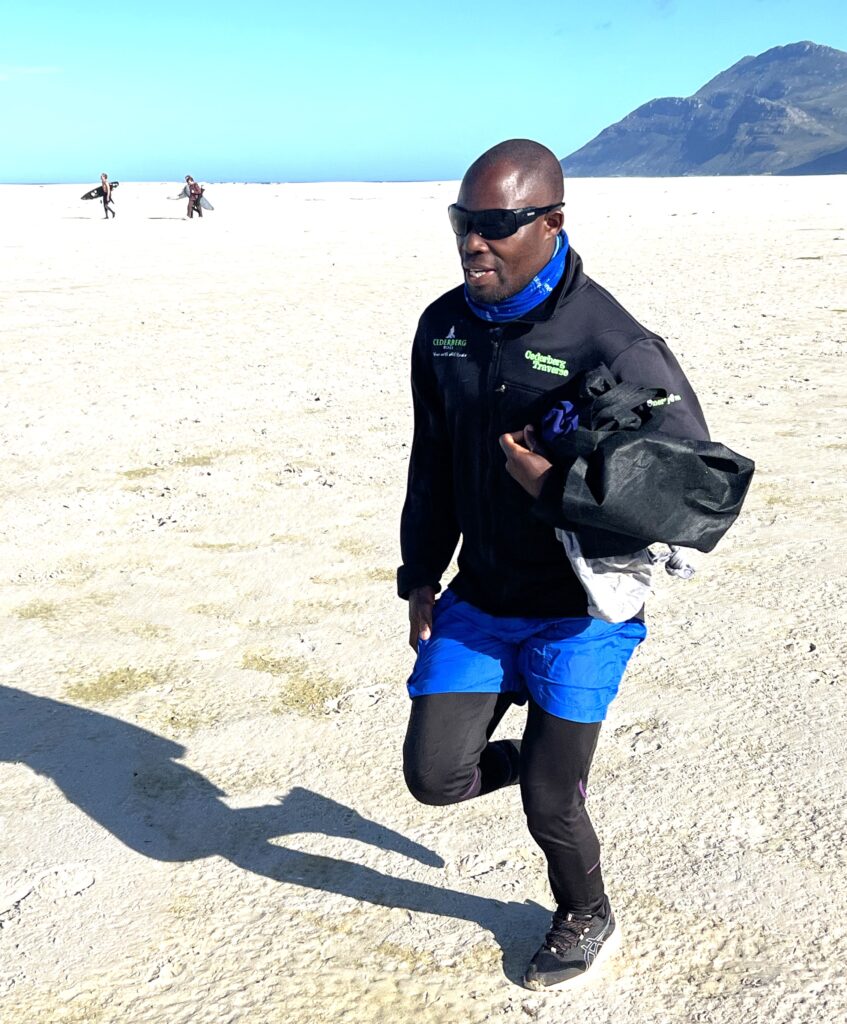
In little more than five minutes, William Chirwa had returned, having completed the 1.5km out and back distance in next to no time, smiling as he hands out the bags so we can contribute to a cleaner Noordhoek, in particular the lagoon-side ecosystem.
“The plastic keeps coming,” the 32-year-old Malawi-born Chirwa admits. “But at Project Noordhoeked we do our best to keep the beach and lagoon area as pollution-free as possible. And even though it may appear to be a never-ending problem, removing this plastic could well save the lives of sea-birds.”
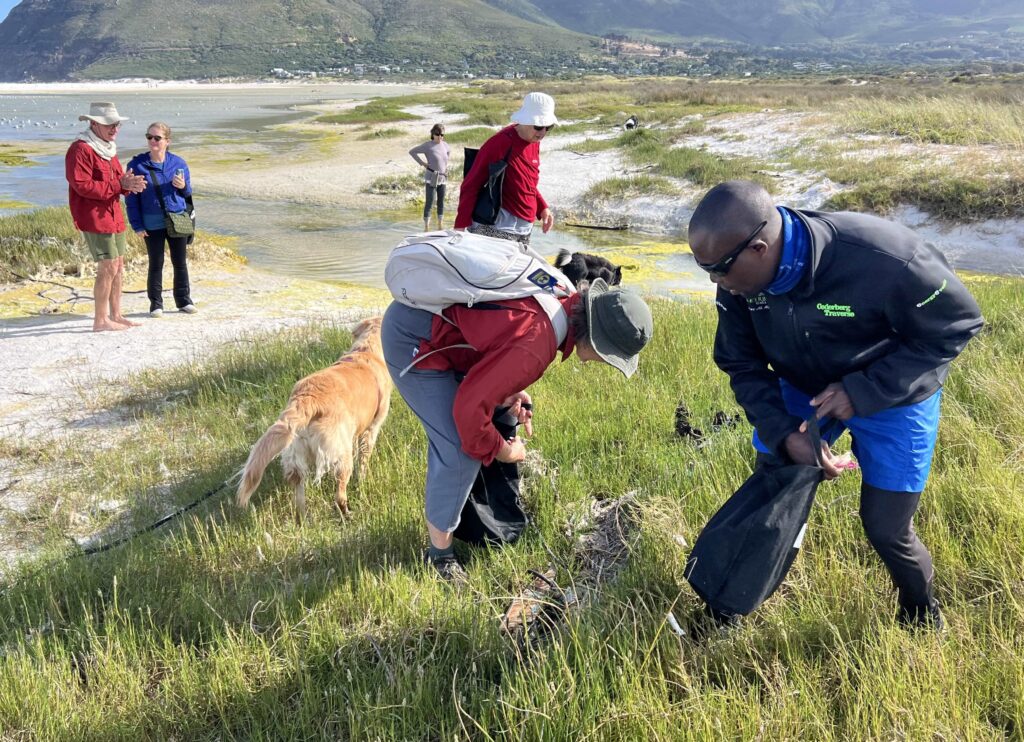
Covering 1.5km out and back along the beach in little more than five minutes is a service beyond the capabilities of the average tour guide, but Chirwa is far from average in many ways.
He may not have realised it at the time of joining Project Noordhoeked, but a spin-off of Chirwa’s new-found gardening and environmental skills has been an awakening of his natural talent for distance running.
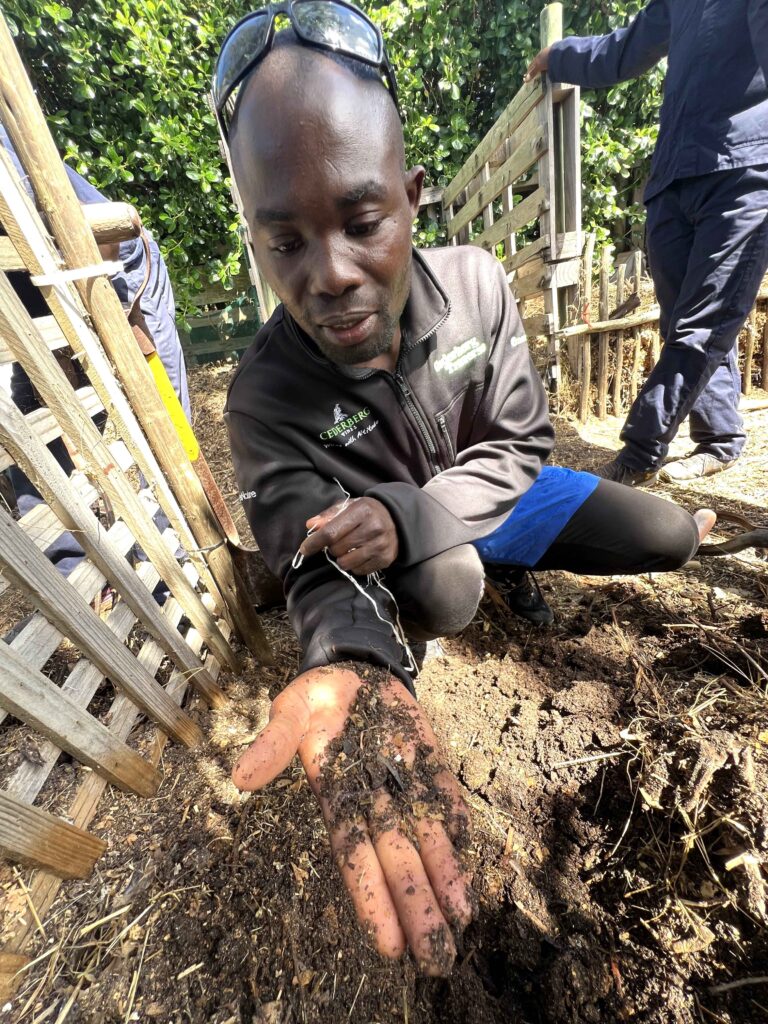
Fortuitously, the project’s initiators, Karoline Hanks and Fillipo Farella, are both accomplished trail runners, with Hanks having made her mark as one of Cape Town’s leading ultra-trail athletes some years back.
It was only a matter of time before they were encouraging and supporting Chirwa in his newly-discovered passion and soon his natural talent was clear.
“William had been cycling to work and back from Redhill informal settlement, where he lives, a distance of more than 30km each day, and he was clearly fit,” says Hanks. “One day he spoke to us about wanting to start running, so we decided to encourage him as much as possible.”
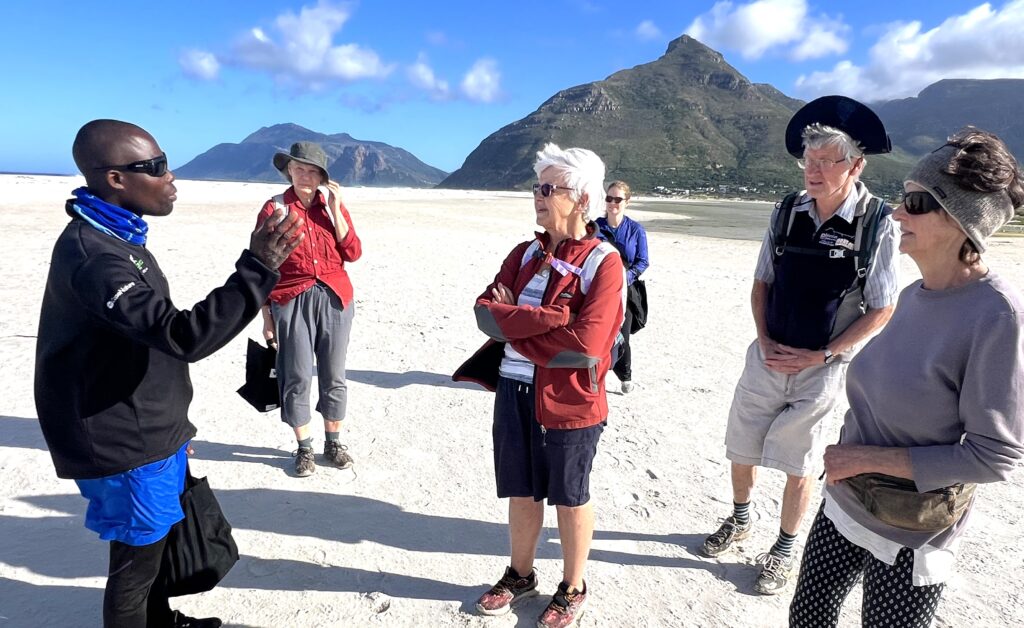
Back to the beach and Chirwa calls us together to explain more of Project Noordhoeked, using the lee of a sand dune to shelter from the wind. “We are a community-based project, supported by local residents,” Chirwa explains.
“Our main focus is on keeping road verges, beaches, wetlands and riversides clean and free of plastics. When people pass through Noordhoek, they can see how we take care of our environment and we hope they will take more care in keeping their own spaces clean.
“We work closely with local residents and users,” he explains. “For example, we built a path through the dunes for the horse riders. That protects the dunes and makes it easier for the riders. And we have also developed a community composting centre, which we use to enrich the soils for our landscaping initiatives.
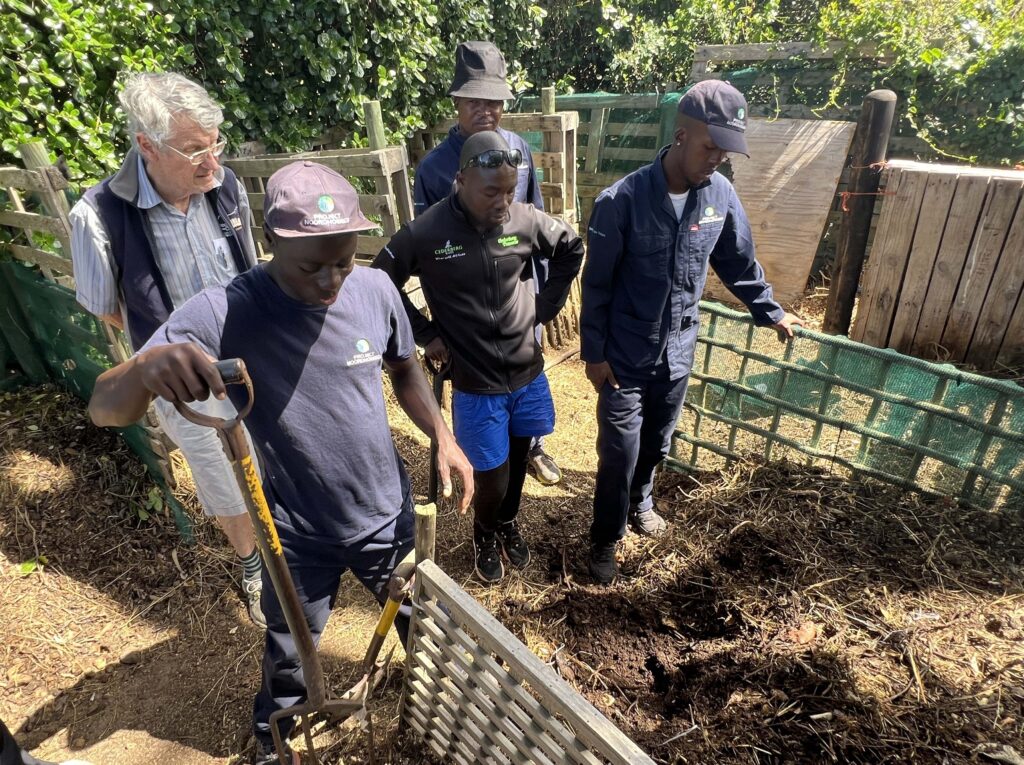
“Project Noordhoeked supports four gardeners and we work closely as a team and partners to ensure we get the best results.”
“What happens to all this plastic we’re collecting?” comes a question from the group.
“Kakapo eats it,” Chirwa laughs, explaining that Kakapo, the name of a ship wrecked on Noordhoek back over a hundred years ago, is now the name of a large whale-shaped wire structure, erected alongside the boardwalk near the car park to receive the plastic collected from the beach.
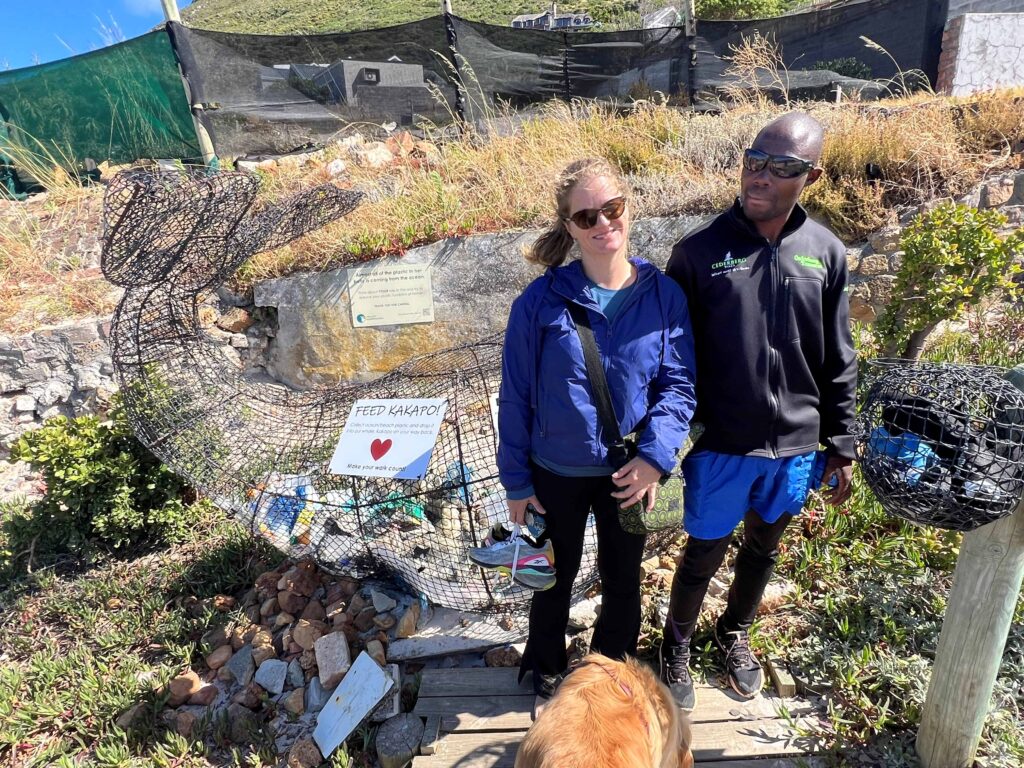
“We harvest the plastic from time to time and use it to make ecobricks, stuffing the plastic into plastic soft-drink bottles. And we use the ecobricks to build useful outdoor furniture, such as the well-used decorative benches near the car park. Each bench has 500kg of waste in one thousand ecobricks!
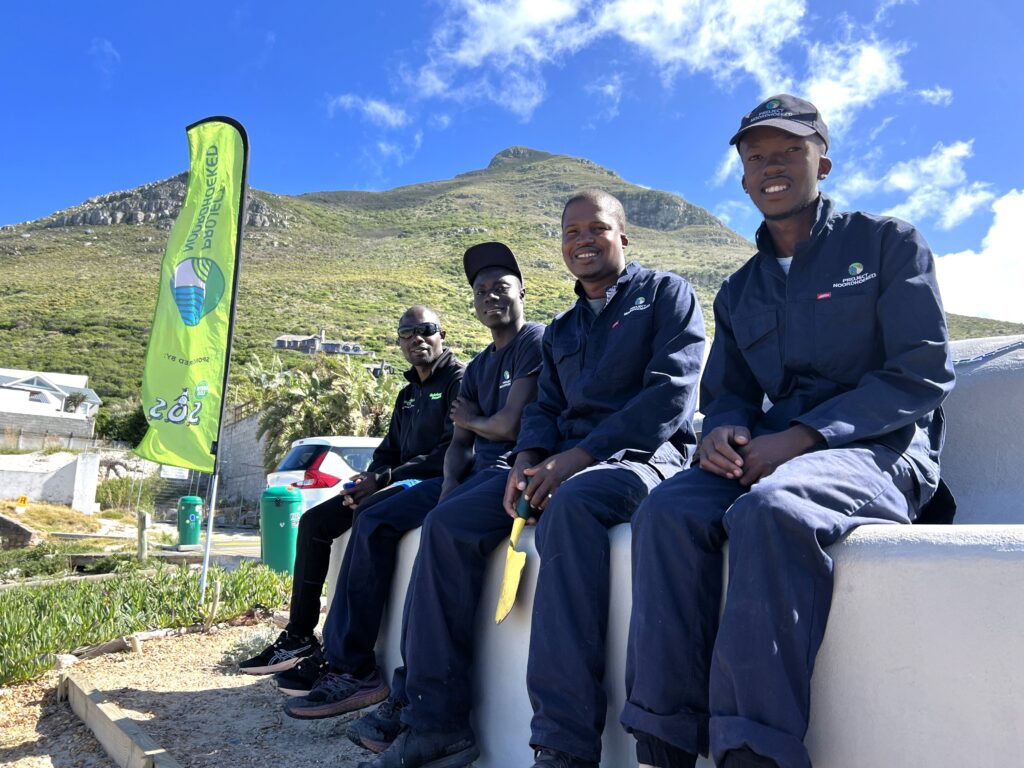
“We also extended the boardwalk a few months ago,” Chirwa proudly explains. “One day I was on the old board walk when an older lady broke her toe on a rock between the end of the board walk and the carpark. So I suggested we do something about it. Now the boardwalk extends right up to the carpark.”
Combining the physical work of Project Noordhoeked with his commuting training regime has contributed significantly to Chirwa’s strength and stamina as he develops his potential as a distance runner.
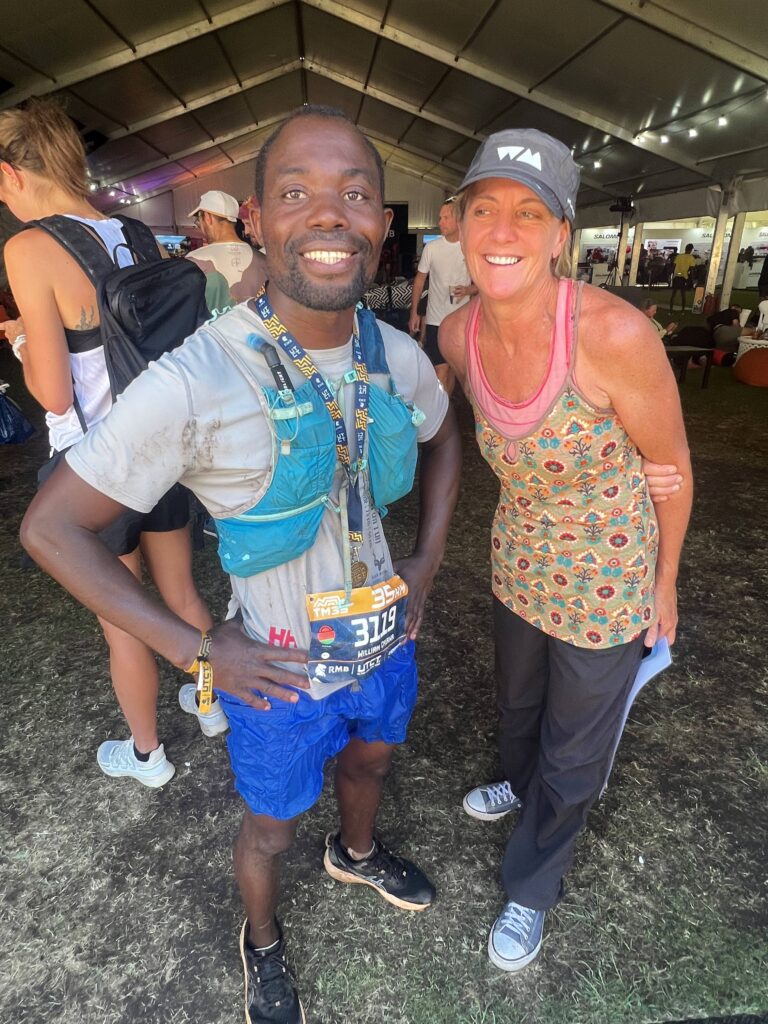
“To give him added incentive, we bought him a pair of running shoes a few months back,” said Hanks. “And we managed to get him a free entry into the Ultra-trail Cape Town 35km race in late November on the back of our volunteer work at the race last year.
“We had no idea how good he would become when he started training about four months before the race, or how he would go in the race. The Ultra-trail Cape Town races are all competitive, with many international athletes taking part. A top twenty or even a top thirty position would have good given his short training preparation. We couldn’t wait to see how he would go.”
Chirwa was equally eager to test himself, although quietly confident he would make it to the finish of one of the toughest 35km races in the business.
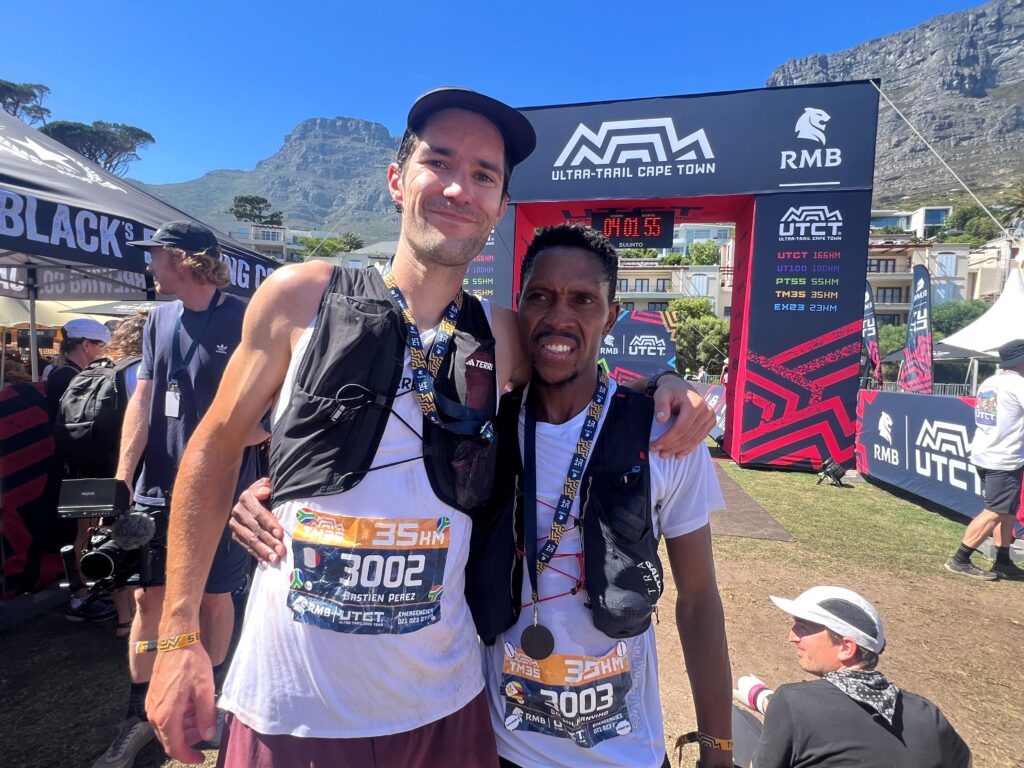
Race day dawned warmer than ideal, even at the 06h00 start, and it was to become uncomfortably warm for racing as the morning unfolded. The racing was also hot upfront, as top trail athletes Zimbabwean Collin Kanyimo and Namibian Wano Katjiri went toe to toe with French trail star, Bastien Perez, while several top athletes were chasing Cape Town’s world-class Bianca Tarboton in the women’s competition.
“We were looking eagerly at the on-line live tracking and couldn’t believe our eyes when we saw William had run through Platteklip Gorge in 10th place,” related Hanks. “Two months earlier we’d taken William on a training run along part of the route. We could see his raw talent as he shot up Platteklip Gorge and now he was doing it in the company of world-class athletes.”
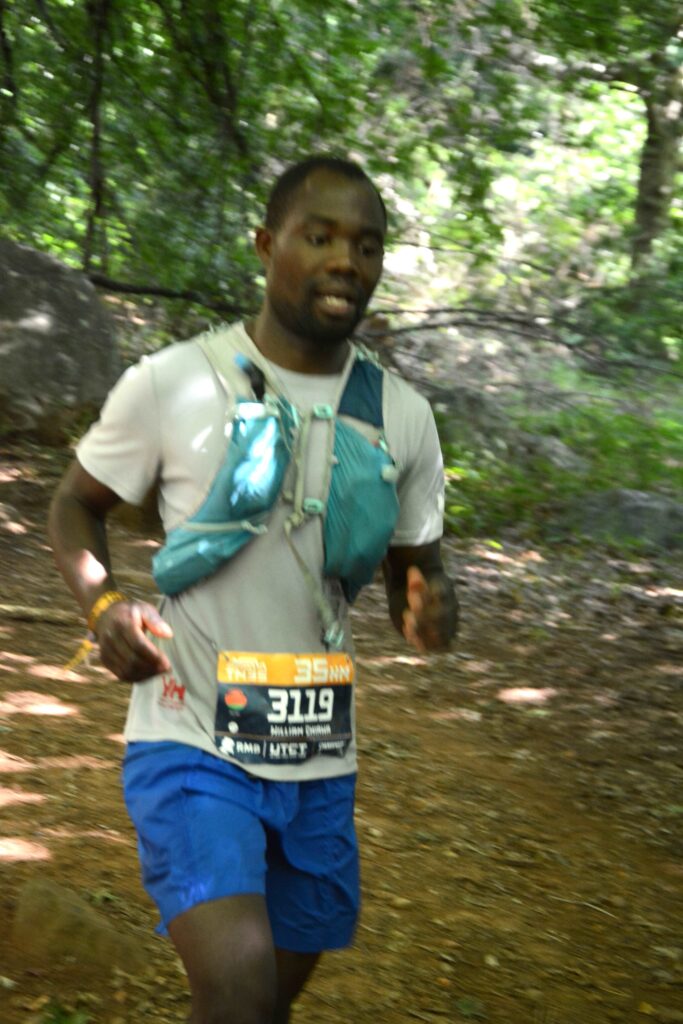
Remarkably, Chirwa held his position in the top ten overall up to the UCT aid station, just 9km from the finish, before navigational challenges threw a curved ball at Chirwa.
“I don’t know what happened, but just after our climb out of the UCT station I must have missed the markers and found myself running off the route,” Chirwa related. “I found my way back to the correct route, but I must have run at least a kilometre extra.”
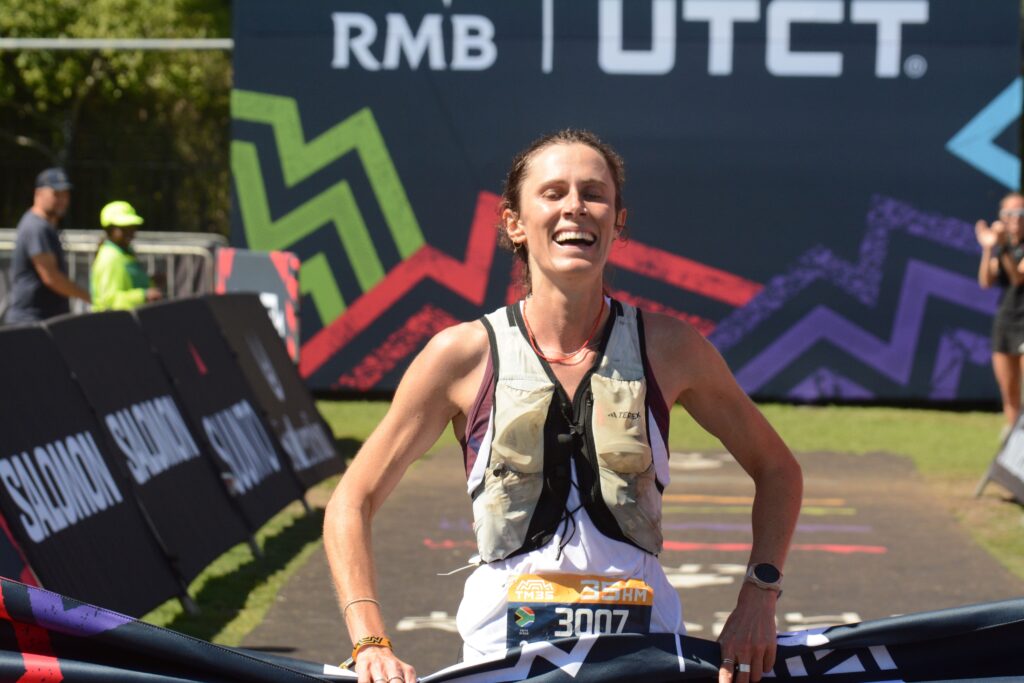
Chirwa was not alone in missing trail markers in the 2023 UTCT and will have learnt the importance of good navigation techniques in trail racing.
While Chirwa’s extra distance cost him several places, with a number of leading women athletes relegating the ‘Noordhoek Newbie’ into 13th overall, he nonetheless bagged 8th place among the men behind French winner Perez. And Chirwa edged out his compatriot, Alick Kapito, by less than a minute to be first Malawian home – a superb effort in his first trail race.
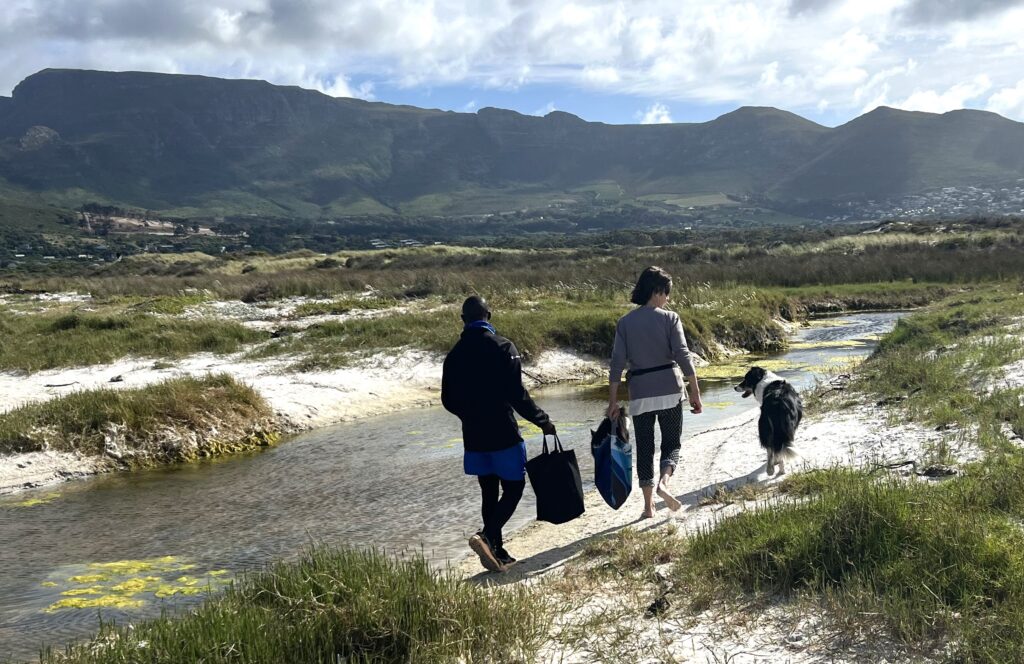
Chirwa is proud of his running achievements and is eager to see how far he can go in the sport, but he is even prouder of the work he and his colleagues have done at Project Noordhoeked.
“We’re proud we’ve removed over ten tonnes of waste from the Noordhoek environment in recent years and in total we’ve cleared about 18 hectares of invasive port Jackson. Noordhoek is very beautiful – it’s a very special place and drives the work we do.”


